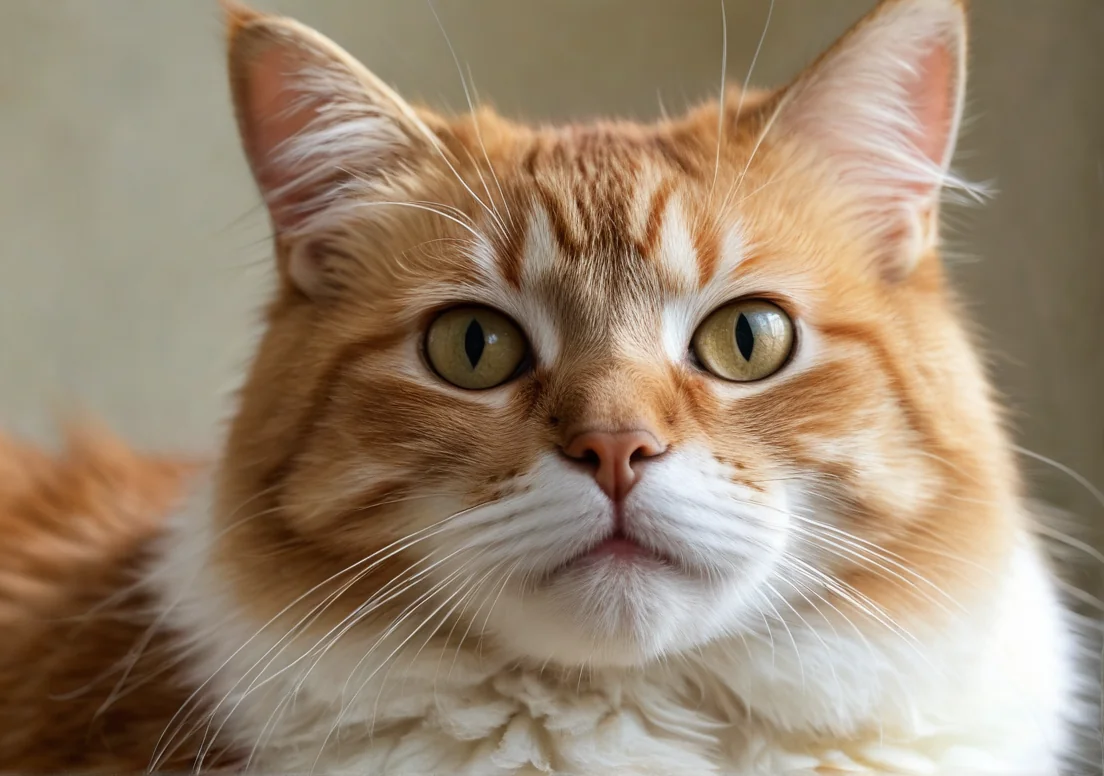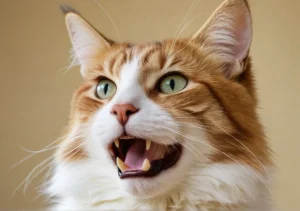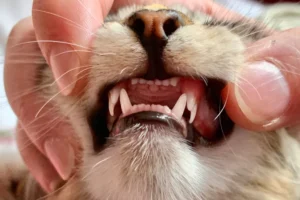A swollen jaw in cats can be an alarming sight for pet owners. Whether it’s discovered during a playful moment or while grooming, it’s a clear signal that something could be wrong.
There are several reasons your cat might have a swollen jaw, ranging from dental issues to infections. Understanding the underlying cause is crucial for ensuring your cat receives the right care. But there’s much more to uncover that can help you understand your cat’s health in detail—let’s explore what could be going on.

What Are Common Causes of a Swollen Jaw in Cats
A swollen jaw in cats can be alarming, pointing to several potential health issues. One of the most common culprits is dental disease. This includes periodontal disease, tooth resorption, or abscesses that can create inflammation and swelling around the jaw area. Cats are notorious for hiding discomfort, so it’s crucial to keep an eye out for subtle signs like bad breath, difficulty eating, or changes in behavior.
Another significant cause could be tumors, whether benign or malignant. Dental tumors can particularly lead to localized swelling. Conditions like infection from a tooth root can also contribute to jaw swelling, as bacteria travel from the mouth into the surrounding tissue.
Other possible reasons include:
- Trauma: An injury to the jaw can cause swelling and pain.
- Allergic reactions: Sometimes a reaction to certain foods, bites, or stings can lead to swelling.
- Cysts or abscesses: These fluid-filled bumps can form due to infection or blockage in the salivary glands.
Understanding these causes is the first step toward ensuring your cat receives the proper care they need. If you notice a swollen jaw, a vet visit is a must to pinpoint the issue and provide appropriate treatment.
How Can Dental Disease Affect Your Cat’s Jaw
Dental disease can significantly impact your cat’s jaw health. The relationship here is straightforward: as plaque builds up, it hardens into tartar and irritates the gums, leading to gingivitis and eventually periodontal disease. This inflammation can extend beyond the gums, causing swelling in the surrounding jaw area.
When a cat suffers from periodontal disease, the bacteria can enter the bloodstream, potentially affecting other organs. Think of it this way: a cat’s mouth is often a battleground for bacteria. Those little critters can lead to infections which can swell the jaw and make your furry friend uncomfortable.
Additionally, tooth resorption is another dental problem that commonly affects felines. This condition leads to the breakdown of the tooth structure, often triggering inflammation and agony, manifesting as a swollen jaw.
Here are some signs of dental disease that can help you act quickly:
- Bad breath: Indicative of underlying issues like plaque buildup.
- Difficulty eating: If your cat avoids hard food, this could signal pain.
- Swollen or bleeding gums: A clear sign of inflammation.
- Frequent pawing at the mouth: Indicates discomfort that shouldn’t be ignored.
Regular vet visits and dental check-ups can help catch these issues before they escalate. Maintaining your cat’s dental health is vital to preventing painful conditions that can lead to jaw swelling and other serious health complications.
What Role Do Infections Play in Jaw Swelling
A swollen jaw in cats often points to an underlying infection. This could stem from bacterial, viral, or even fungal infections. For example, periodontal disease is a common culprit. Bacteria can invade the gums, leading to inflammation and, ultimately, swelling.
Another significant player is abscesses, usually formed when an infection from a broken tooth or bite wound festers beneath the skin. An abscess can push against surrounding tissues, causing noticeable swelling in the jaw area.
Viral infections like feline calicivirus may also contribute to jaw swelling, typically associated with flu-like symptoms.
Let’s not overlook fungal infections like cryptococcosis, especially in regions where this fungus is prevalent. It can invade tissues and lead to swelling in the face or jaw.
Signs to watch for include reluctance to eat or drink—clearly, if your cat is in pain, it might avoid using its mouth. If you see any unsettling symptoms or suspect an infection, it’s best to have a vet look at your kitty ASAP.
Are There Other Medical Conditions That Cause Jaw Swelling
Jaw swelling isn’t just about infections; it can stem from various medical conditions. Allergies, for instance, might trigger a reaction leading to localized swelling. Your cat could be having an allergic response to food, environmental factors, or even insect bites.
Systemic diseases such as cancer or autoimmune conditions can also manifest in this way. Tumors in the jaw area may create pressure, giving the appearance of swelling. Similarly, autoimmune disorders might cause inflammation throughout the body, including the jaw.
Here’s a quick rundown of other potential causes of jaw swelling:
- Dental issues: Such as tooth fractures or decay.
- Trauma: Injuries from play or clashes can lead to swelling.
- Neoplasia: Benign or malignant growths affecting the jaw.
- Thyroid problems: Hyperthyroidism can cause changes in facial structure over time.
Look for accompanying signs like changes in eating habits, behavior shifts, or unusual swelling patterns. Detecting changes early could make all the difference, so keep an eye out and consult your vet with any concerns.
How Can You Identify Symptoms Other Than Swelling
A swollen jaw in your cat can signal a variety of health issues, and it’s crucial to look for other accompanying symptoms that might tell a more complete story. Pay attention to these signs:
- Bad breath or a sudden change in oral odor can indicate dental issues or infections.
- Drooling excessively might mean pain, signaling dental or throat problems.
- Changes in appetite—if your cat suddenly refuses to eat or shows great difficulty while chewing, it’s a red flag.
- Behavioral changes, like becoming unusually withdrawn or irritable, can point to underlying pain.
- Fever may accompany other symptoms, suggesting an infection or illness.
Each of these signs can play a vital role in identifying the underlying cause of the swelling. For example, if your cat is drooling and has bad breath, it could be as simple as a dental abscess needing attention. Taking note of these symptoms can help your vet make a more accurate diagnosis.
What Should You Do If You Notice Swelling
The first step upon discovering that your cat has a swollen jaw is to assess the situation calmly. It’s often tempting to panic, but keeping a level head can help you focus on what matters.
Start by gently feeling the area around the jaw to see if there’s any tenderness or heat, and observe your cat’s overall behavior. If your cat is still playful and eating, it may not be an emergency, but don’t ignore it.
You should definitely reach out to a veterinarian if you notice:
- Persistent swelling lasting more than a day.
- Signs of pain when touched or if your cat is vocalizing in distress.
- Swelling is accompanied by fever, lethargy, or other severe symptoms.
Don’t hesitate to schedule an appointment for a professional evaluation. Treatment might range from antibiotics for infections to potential dental procedures or even biopsies in more serious cases. Monitoring your cat closely and acting on abnormal signs can lead to better outcomes.
How Is Jaw Swelling Diagnosed by Vets
Understanding what causes your cat’s swollen jaw is critical, and veterinarians employ a variety of methods to get to the bottom of it. They typically start with a thorough physical examination, assessing not just the jaw but also your cat’s overall health and behavior.
Next up is diagnostic imaging like X-rays or ultrasounds. These tools help visualize bone structure, teeth, and surrounding tissues, making it easier to diagnose conditions like abscesses or tumors.
If there’s suspicion of an infection, vets may perform a fine needle aspiration to collect fluid or cells for analysis. This helps identify what type of infection or disease may be causing the swelling.
They may also look at your cat’s dental health. Gum disease can lead to significant swelling, so a dental exam or even cleanings might be necessary. It’s pretty common for issues like this to arise from neglected dental care.
Lastly, don’t be surprised if your vet suggests blood tests. They can reveal underlying conditions like allergies or systemic issues that could lead to inflammation.
What Treatments Are Available for Cats with Jaw Swelling
Treating a cat with a swollen jaw involves addressing the underlying cause, and there’s a variety of options to consider.
Medication : If the cause is an infection or inflammation, your vet might prescribe antibiotics or anti-inflammatory medications. Pain relief can also be crucial for your cat’s comfort during recovery.
Dental Procedures : In cases related to dental issues, such as an abscessed tooth, your cat may require a tooth extraction or a thorough dental cleaning. Keeping your feline’s teeth healthy can help prevent future problems.
Surgery : For more serious issues, like tumors or cysts, surgical intervention may be necessary. While it might sound daunting, these procedures are often straightforward and can dramatically improve your cat’s quality of life.
Dietary Changes : Incorporating a soft diet may also be recommended, especially if chewing is painful for your cat. Maintaining hydration is essential, too, as discomfort can lead them to drink less.
Follow-up care : Regular check-ups are crucial for monitoring your cat’s recovery, ensuring that any treatment is effective, and adjusting as necessary.
In any case, it’s always best to collaborate closely with your vet to tailor a treatment plan that fits your cat’s specific needs. Taking swift action can prevent issues from escalating, and your cat will surely thank you for it!
Can Jaw Swelling Be Prevented
Preventing jaw swelling in cats often hinges on proactive care. Regular veterinary check-ups are crucial; annual visits can help catch potential issues early. Here are some specific tips to reduce the risk of conditions contributing to jaw swelling:
Maintain Oral Hygiene : Regularly brushing your cat’s teeth can prevent periodontal disease, a common culprit in jaw swelling. Consider dental treats designed to promote oral health, too.
Watch for Injuries : Keep an eye on playtime. Avoid roughhousing that could lead to accidental bites or injuries that might cause swelling.
Healthy Diet : Feed your cat a balanced diet high in nutrients. Poor nutrition can weaken their immune system, making them more susceptible to infections.
Limit Outdoor Access : If possible, restrict your cat from roaming outside where they could face fights with other animals or exposure to harmful substances.
Monitor Their Health : Be vigilant about any changes in your cat’s behavior, eating habits, or dental condition. Early intervention can sometimes prevent bigger problems down the road.
What Are Some Interesting Facts About Cat Health
Cats have some fascinating health quirks. For instance, did you know that cats are obligate carnivores? This means their bodies are designed to thrive on a meat-based diet, unlike dogs. This unique dietary requirement can lead to jaw swelling if they somehow consume inappropriate foods that cause digestive or dental issues.
Another curious fact is that cats have fewer taste buds for sweetness. They’re more sensitive to bitter flavors, which is believed to help them avoid toxic plants.
Additionally, feline dental disease is alarmingly common; around 70% of cats over three years old show signs of oral disease. This can lead to serious health issues, including jaw swelling.
Finally, always keep in mind that Cats can tolerate pain differently than humans. A cat might not show clear signs of discomfort, hiding it instead—this makes regular health assessments vital for catching issues like jaw swelling early on.
Being aware of these facts can help deepen your appreciation of your feline friend’s unique health needs and quirks.
Alex, a passionate animal lover, has experience in training and understanding animal behavior. As a proud pet parent to two dogs and three cats, he founded AnimalReport.net to share insights from animal experts and expand his knowledge of the animal kingdom.




